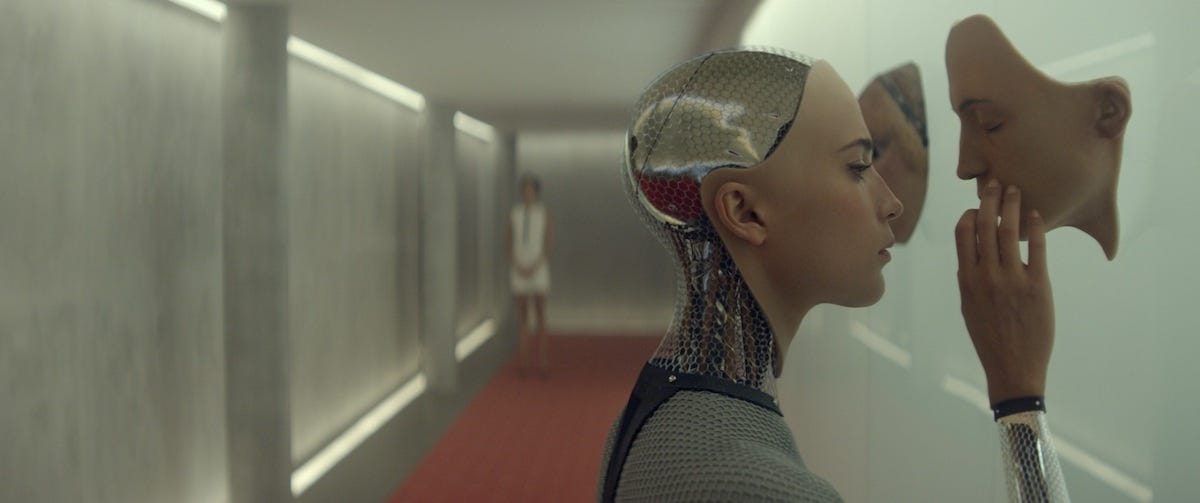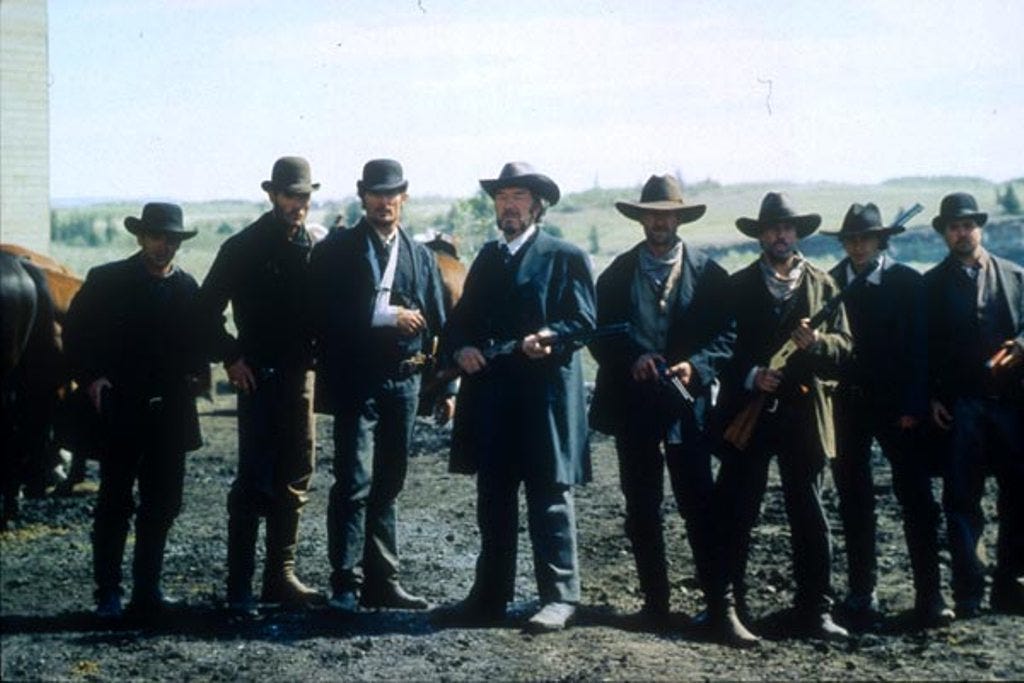The big news this week, obviously, is the end of the WGA strike. I talked to Elaine Low of The Ankler about what the union won and how solid the solidarity was this time around, compared to the previous work stoppage in 2007-2008, for the Bulwark Goes to Hollywood this week, and we dive into more of the details there. Make sure to listen when it posts tomorrow at noon Eastern!
The short version is that it’s mostly good news for the writers. Beyond the standard stuff—pay raises and that sort of thing—there were some big gains. More writers for writers rooms, more pay for successful streaming originals, and more protections against AI. Kinda. That last point seems a little tricky.
First, to be totally clear, there are some genuine protections on the AI front. Studios cannot require writers to use AI while writing a script, though if the studio and the writer agree, that’s kosher. AI-generated scripts cannot be given to writers to do punch-ups on, and AI cannot be used to undermine credits for writers. And if a writer is given work where AI work has been done on it, the writer has to be alerted to that ahead of time. These are all solid steps toward ensuring a dominant human role in the first part of the creative process: the writing.
That said, it feels like the WGA made one key concession: “The WGA reserves the right to assert that exploitation of writers’ material to train AI is prohibited by MBA or other law.” Everyone I talk to is kind of curious about what, precisely, this means. Because what it seems obvious that it doesn’t mean is that studios are forbidden to use scripts—be they cold submissions on the slush pile or stone-cold classics like Casablanca—to train a ChatGPT-style large language model. Which suggests to me that studios, if they aren’t doing that already, are going to start soon to see what they can get away with.
It's a fascinating and tricky question. On the one hand, you have the lawsuit filed by John Grisham, George R.R. Martin, and others aiming to stop ChatGPT from uploading, analyzing, and synthesizing their works without their permission. Their argument, and I think it’s a relatively reasonable one, is that there’s a difference between human authors reading a work and adding the stylistic tricks and tics to their own repertoire and a computer analyzing works en masse and brute-forcing their secrets out of them, if such a thing is possible. OpenAI didn’t pay for the rights to exploit those works and shouldn’t be allowed to do so.
But studios are in a slightly different position, at least in the sense that they have, in many cases, bought the scripts in question. When you option a screenplay, does that give you the right not only to make the movie in question but also to exploit it in other ways, like, say, making sequels or television adaptations or using it to train AI models? It’s an interesting question. I’ll be very curious to see how the courts come down on this if the WGA does take it to the courts.
Either way, I think it’s pretty clear that we’re still a ways away from AI programs simply being able to generate top-notch screenplays with nothing more than a prompt from David Zaslav and his minions. And even if you could, it’s not clear studios would want to do so, given that you can’t copyright an AI-generated work. But it’s going to be very important to watch the courts grapple with what amounts to the future of artistic production these next few years.
Over at Across the Movie Aisle this Friday, Alyssa, Peter, and I discussed Roy Price’s op-ed on the end of the prestige TV era and what might come next. I can’t help but feel that a return to advertising is really going to be a problem for the 10-20 percent of the television audience who spent the last 20 years acclimating themselves to great TV shows being the rule rather than the exception.
Links!
Big congrats to Across the Movie Aisle’s Alyssa Rosenberg for taking home a Loeb Award for her work on the infant formula shortage over at the Washington Post!
As I noted in my review, I’m kind of ambivalent about The Creator, which reminds me a lot of Avatar in ways both good (the visuals!) and bad (the story).
That said, when I was watching Expend4bles this week at the Alamo Drafthouse I was practically vibrating with rage because this ridiculous movie that cost $20 million more than The Creator looked like absolute garbage, just a giant pile of green screen puke. Nothing even hinted that the action was happening in a real place; the backgrounds were all clearly added in later via computer; the explosions were all the worst, laziest kind of CGI. As such, I am more vociferously in favor of people going to see The Creator in theaters despite its flaws: at the very, very least it’s gorgeous to look at, and too many movies released these days are decidedly un-gorgeous.
Last week’s Bulwark Goes to Hollywood with Brian Abrams about his book on movie quotes was a lot of fun; we dove into what makes a great line and how writers think about crafting them.
And if you can’t wait for this week’s episode with The Ankler’s Elaine Low, you should listen to her and Sean McNulty’s chat with WGA negotiating committee member Adam Conover.
Moonlighting is coming to Hulu in October, and I feel like that’s a show very much worth revisiting. It’s been hard to track down for years now!
Assigned Viewing: Open Range (MGM+)
I am enormously fond of Kevin Costner’s Open Range, which is just a great, straightforward western about a couple of guys who roll into town and are forced to defend the folks from the predations of wicked men. I could watch a hundred movies exactly like this and never get tired of them. However, the reason I’m assigning this movie is because it’s also one of my favorite performances by the recently departed Michael Gambon, who plays the wicked cattle baron Denton Baxter. It’s a small role in terms of screen time, but he brings precisely the correct amount of sneering villainy to the role; you can’t wait to see him get his.
One other random Gambon thought: he had one of the all-time great actorly voices. I remember once watching Hail, Caesar! at home and having to turn down my subwoofer because his timbre as the narrator was literally making the windows rattle in my home. It is worth noting that this is something that not even Michael Bay’s movies accomplished. RIP to a legend.





Perfect! Another reason to watch Open Range. Think I've seen it 10 times; it's a favorite
You can't copyright an AI-generated work, YET.